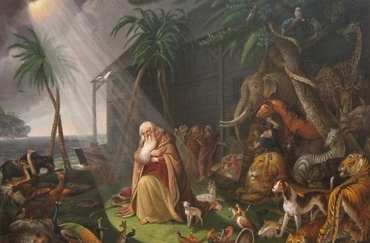Beast

In Genesis 1:24, beasts signify the things of man's will or loves. (Arcana Coelestia 44, 46)
In Genesis 9:10, beasts signify all that was living in the man of the Ancient Church, and also what belonged to his new will; likewise the lower things of his understanding and the will therefrom. (Arcana Coelestia 1026-1029)
In Psalm 104:20, beasts signify affections longing to be instructed, or spiritually nourished. (Apocalypse Explained 650[10])
In Luke 10:35, since the beast was a donkey, this signifies to instruct another according to his capability. (Apocalypse Explained 1154)
The beast of the south (Isaiah 30:6) signifies people who are principled in the knowledges of good and of truth, but do not apply them to life and instead to science.
Every beast and creeping thing (Genesis 8:19) signifies the goodnesses of the internal and external man.
"Beasts" represent the affection for doing good things, a true desire to do them from the heart. In the negative sense, "beasts" stand for the lust to do evil.
The beast ascending out of the sea (Revelation 13:1) signifies reasonings from the natural man confirming the separation of faith from life.
(Ссылки: Apocalypse Explained 13, 773; Revelation 13:11)
The New Jerusalem and its Heavenly Teachings # 28
28. Will and Understanding
We have two abilities that make up our life, one called will and the other understanding. 1 They are distinguishable, but they are created to be one. When they are one, they are called the mind; so they are the human mind and it is there that all the life within us is truly to be found.
Сноски:
1. The Latin words here translated "will" and "understanding" are voluntas and intellectus, respectively; the latter is also sometimes translated " intellect. " In Swedenborg's use, however, intellectus has a somewhat broader connotation than understanding or intellect has today, one more consonant with the use of the Latin word in the system of the Scholastics. For example, in the philosophy of the major figure of Scholastic thought, Thomas Aquinas (1224 or 1225-1274), which underlies the terminology of much of philosophical language up to and including Swedenborg's time, intellectus encompasses all of what we associate with the faculties of mind, not only the capacity to reason and understand, but the capacity to perceive ideas in the abstract, as well as the mind's ability to be aware of itself (Shallo 1923, 115-116). The complementarity of will and intellect is also something Swedenborg shares with Scholastic thought. For an overview of the relationship between the will and the intellect, see True Christianity 397; for a detailed and extensive account of their interaction as analogous to that of the heart and the lungs, see Divine Love and Wisdom 394-431. For discussion of the related term "intellectual truth," see note 1 in New Jerusalem 26 above. For further discussion of the will and the understanding, see note 1 in New Jerusalem 33 below. [GFD, RS, JSR]






